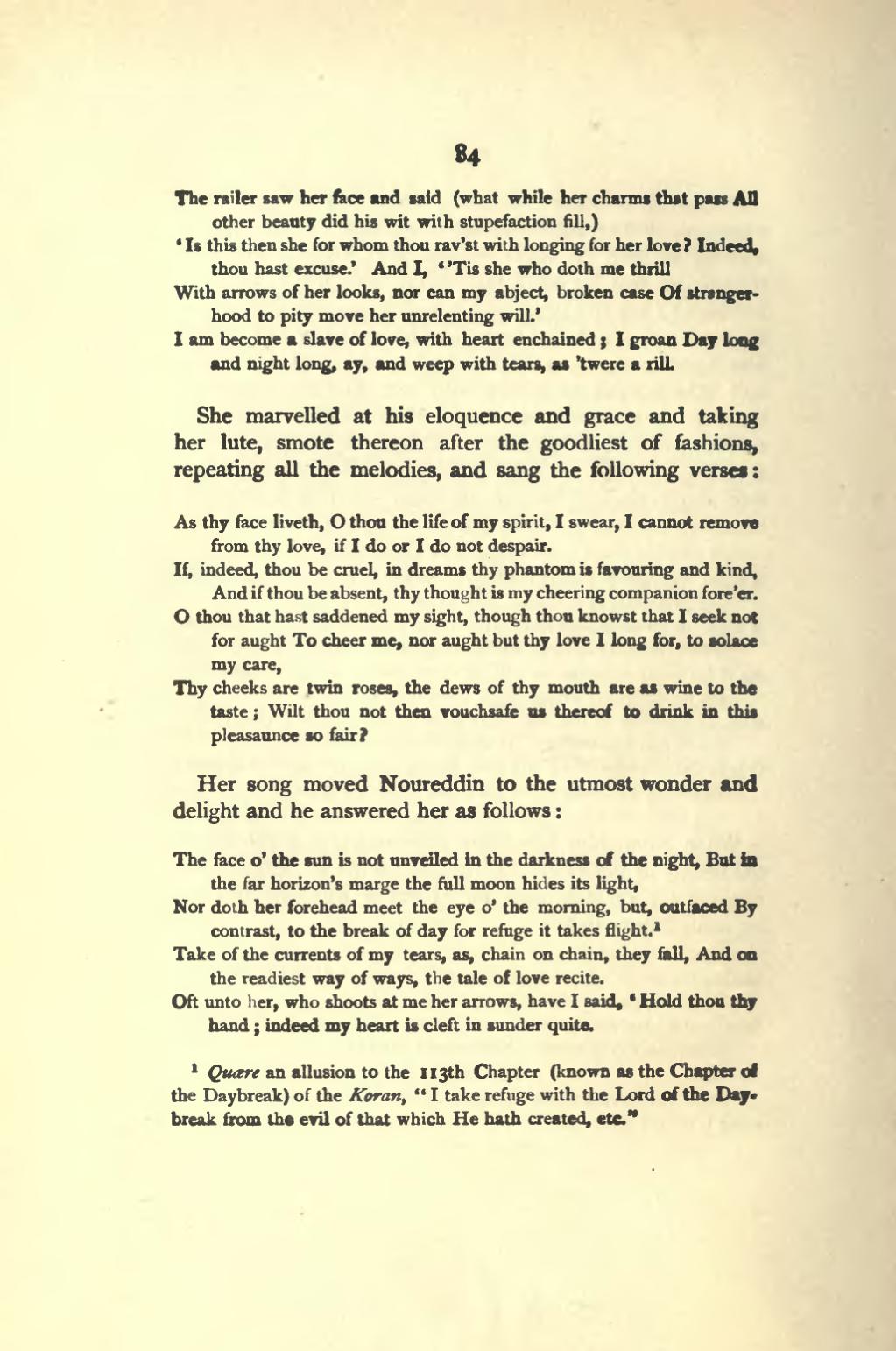84
The railer saw her face and said (what while her charms that pass All other beauty did his wit with stupefaction fill,)
‘Is this then she for whom thou rav’st with longing for her love? Indeed, thou hast excuse.’ And I, ‘’Tis she who doth me thrill
With arrows of her looks, nor can my abject, broken case Of strangerhood to pity move her unrelenting will.’
I am become a slave of love, with heart enchained; I groan Day long and night long, ay, and weep with tears, as ’twere a rill.
She marvelled at his eloquence and grace and taking her lute, smote thereon after the goodliest of fashions, repeating all the melodies, and sang the following verses:
As thy face liveth, O thou the life of my spirit, I swear, I cannot remove from thy love, if I do or I do not despair.
If, indeed, thou be cruel, in dreams thy phantom is favouring and kind, And if thou be absent, thy thought is my cheering companion fore’er.
O thou that hast saddened my sight, though thou knowst that I seek not for aught To cheer me, nor aught but thy love I long for, to solace my care,
Thy cheeks are twin roses, the dews of thy mouth are as wine to the taste; Wilt thou not then vouchsafe us thereof to drink in this pleasaunce so fair?
Her song moved Noureddin to the utmost wonder and delight and he answered her as follows:
The face o’ the sun is not unveiled in the darkness of the night, But in the far horizon’s marge the full moon hides its light,
Nor doth her forehead meet the eye o’ the morning, but, outfaced By contrast, to the break of day for refuge it takes flight.[1]
Take of the currents of my tears, as, chain on chain, they fall, And on the readiest way of ways, the tale of love recite.
Oft unto her, who shoots at me her arrows, have I said, ‘Hold thou thy hand; indeed my heart is cleft in sunder quite.
- ↑ Quære an allusion to the 113th Chapter (known as the Chapter of the Daybreak) of the Koran, “I take refuge with the Lord of the Daybreak from the evil of that which He hath created, etc.”
